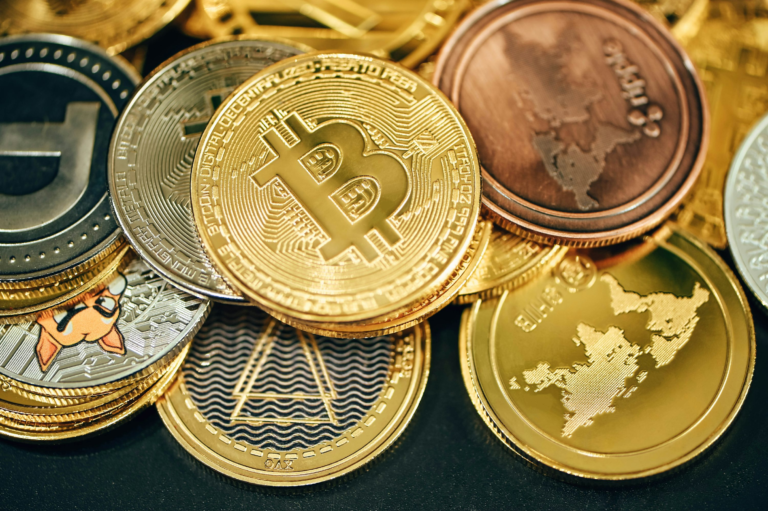Cryptocurrencies have revolutionized the financial landscape, with Bitcoin leading the charge. However, as the market matures, investors are increasingly exploring alternatives beyond the pioneering cryptocurrency. In this dynamic environment, understanding and navigating the world of altcoins has become crucial for those seeking to diversify their portfolios and optimize returns. Additionally, if you want to know more about investments and firms, you may visit the Bitcoineer system.
Understanding Altcoins
Definition and Differentiation from Bitcoin
Altcoins, or alternative coins, encompass all cryptocurrencies other than Bitcoin. While Bitcoin remains the flagship digital currency, altcoins have emerged to address specific shortcomings or introduce innovative features. Unlike Bitcoin, which primarily functions as a store of value, altcoins serve diverse purposes, including facilitating smart contracts, ensuring privacy, or maintaining a stable value.
Various Types of Altcoins
Altcoins come in various forms, each serving a unique function in the crypto ecosystem. Utility tokens, like Ethereum, power decentralized applications, while stablecoins, such as USDC or DAI, peg their value to traditional currencies, reducing volatility. Privacy coins like Monero focus on enhancing transaction anonymity, catering to users valuing confidentiality.
Historical Performance and Success Stories
Analyzing historical altcoin performance reveals both successes and cautionary tales. Ethereum, for instance, not only introduced smart contracts but also demonstrated substantial growth in value. Conversely, some altcoins have experienced dramatic rises and falls, emphasizing the importance of thorough research before investing.
Researching and Selecting Altcoins
Fundamental Analysis
Successful altcoin investment starts with a comprehensive fundamental analysis. Investigate the technology underpinning the coin, assess the development team’s expertise, and scrutinize the use case. A strong foundation increases the likelihood of long-term viability.
Technical Analysis
Navigating the volatile crypto market requires proficiency in technical analysis. Understanding chart patterns, identifying support and resistance levels, and recognizing potential trend reversals are essential skills for any altcoin investor. Technical analysis complements fundamental insights, providing a holistic view of market dynamics.
Role of Market Sentiment and Community Support
Altcoins are not just technological entities; they are also social constructs. Monitoring market sentiment and gauging community support through forums and social media can provide valuable insights. Positive sentiment and a robust community can contribute to an altcoin’s sustained success.
Building a Diverse Altcoin Portfolio
Balancing Risk and Reward
Diversification remains a cornerstone of sound investment strategy. Allocate funds across different types of altcoins to mitigate risk and capture potential opportunities. While high-risk, high-reward assets can be enticing, a balanced portfolio minimizes exposure to volatility.
Strategies for Allocating Funds
Strategic allocation involves considering factors such as market capitalization, risk tolerance, and investment horizon. Allocate a portion of your portfolio to established altcoins with proven track records, while also reserving space for emerging projects with high growth potential.
Long-term vs. Short-term Approaches
Altcoin investing offers both short-term trading opportunities and long-term growth potential. Consider your investment goals and risk tolerance when deciding on your approach. Short-term traders may capitalize on price volatility, while long-term investors can benefit from a project’s sustained success.
Navigating Altcoin Exchanges
Overview of Popular Altcoin Exchanges
Selecting the right exchange is crucial for effective altcoin trading. Platforms like Binance, Coinbase, and Kraken offer a wide range of altcoins. Research each exchange’s security measures, user interface, and available features to find the one aligning with your needs.
Security Considerations
Security is paramount in the crypto space. Use hardware wallets for cold storage, enable two-factor authentication, and keep abreast of exchange security protocols. Being proactive in securing your altcoins minimizes the risk of unauthorized access and potential loss.
Tips for Managing and Securing Holdings
Regularly update your knowledge on security best practices. Employing proper risk management, diversifying holdings across multiple wallets, and staying informed about potential vulnerabilities enhance the security of your altcoin holdings.
Emerging Trends in the Altcoin Space
DeFi and its Impact on Altcoins
Decentralized Finance (DeFi) has reshaped the altcoin landscape by introducing financial services without traditional intermediaries. Altcoins like Aave and Compound are integral to the DeFi ecosystem, providing lending, borrowing, and yield farming opportunities.
Influence of Regulatory Developments
As the crypto space evolves, regulatory scrutiny intensifies. Altcoin investors must stay informed about regulatory developments worldwide. Clearer regulations can provide legitimacy and stability to the altcoin market, while uncertainty may lead to increased volatility.
Risks and Challenges in Altcoin Investing
Market Volatility
Altcoins are renowned for their price volatility. While this volatility presents opportunities, it also poses substantial risks. Investors must be prepared for sudden and significant price fluctuations, necessitating a disciplined and resilient approach.
Security Risks
Investing in lesser-known altcoins carries inherent security risks. Some projects may lack robust security measures, making them susceptible to hacks and vulnerabilities. Thoroughly vetting projects and exchanges mitigates these risks.
Impact of Regulatory Uncertainty
The regulatory environment significantly influences altcoin markets. Uncertainty surrounding legal frameworks can lead to market instability. Investors should monitor regulatory developments and adjust their strategies accordingly.
Strategies for Success: Altcoin Trading and Hodling
Tactical Trading Strategies
Altcoin trading requires a well-defined strategy. Implementing tactics like setting entry and exit points, utilizing stop-loss orders, and staying informed about market news can enhance your trading success.
The Art of Hodling
Hodling, or holding onto assets for the long term, is a popular strategy in the crypto community. Successful hodlers focus on fundamental analysis, resist emotional decision-making, and weather short-term market fluctuations with a long-term perspective.
Real-world Examples of Successful Investors
Studying the strategies of successful altcoin investors provides valuable insights. Notable figures like the Winklevoss twins, who early invested in Bitcoin, and Ethereum co-founder Vitalik Buterin offer inspiration and lessons for aspiring altcoin enthusiasts.
Conclusion
To successfully navigate the complex realm of altcoins, investors must incorporate a mix of research, strategic thinking, and adaptability into their approach. This involves gaining a deep understanding of various altcoins, implementing reliable investment practices, and keeping a close eye on emerging trends within the dynamic crypto landscape. Recognizing the vast array of options in the altcoin arsenal is essential, and success hinges on arming oneself with the requisite knowledge for making informed decisions.








